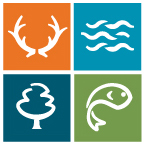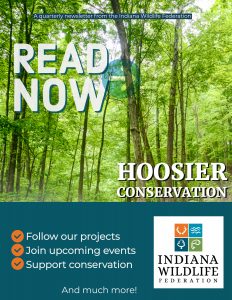U.S. Fish & Wildlife Service
NEWS RELEASE
Midwest Region
5600 American Boulevard West, Suite 990, Bloomington, MN 55437
612-713-5360
September 6, 2018
Contact: Georgia Parham 812-334-4261 x 203, Georgia_Parham@fws.gov
Carrie Tansy 517-351-8375, Carrie_Tansy@fws.gov
Draft plan to conserve rare butterflies in Indiana and Michigan available for public review
The U.S. Fish and Wildlife Service is seeking public input on a draft habitat conservation plan
outlining conservation measures for the Poweshiek skipperling and Mitchell’s satyr, two
federally endangered butterflies found in southern lower Michigan and northern Indiana.
The draft plan is part of a process by the Michigan Department of Natural Resources (DNR) and
the Indiana DNR to obtain an incidental take permit under the Endangered Species Act that
would allow the agencies to conduct long-term conservation activities to benefit the species even
if some actions resulted in harm to butterflies.
The plan covers specific actions on non-Federal lands in Berrien, Branch, Cass, Jackson, Van
Buren and Washtenaw counties in Michigan and LaGrange County, Indiana, in the range of the
Mitchell’s satyr, and Oakland County Michigan, where the majority of remaining Poweshiek
skipperling populations still exist.
The types of activities covered in the habitat conservation plan include burning, mowing,
vegetation removal, control of non-native species, grazing, seeding, planting and survey work.
Because these activities, while benefiting the two butterflies, may result in harm to a small
number of individuals, the agencies have developed the conservation plan and have applied for
an incidental take permit under the Endangered Species Act.
The Endangered Species Act provides for incidental take permits for otherwise legal activities
that may result in take (harming, killing or harassing) of federally endangered or threatened
animals. To obtain an incidental take permit, applicants must develop a habitat conservation
plan that provides for long-term conservation of the species. Habitat conservation plans spell out
measures to minimize take of covered species, and steps to mitigate for the loss of any individual animals.
Only activities intended to manage habitat for the benefit of Mitchell’s satyr and Poweshiek
skipperling while minimizing incidental take are included in this draft plan. Additional
mitigation measures will not be required.
The areas covered by the draft habitat conservation plan include about 192 acres of Mitchell’s
satyr habitat in Michigan and Indiana, along with about 50 acres of habitat in Michigan for the
Poweshiek skipperling. The states’ natural resources departments will administer the plan;
private landowners interested in conserving habitat for the butterflies may also participate.
To view the draft habitat conservation plan and application for incidental take permit, go to
https://www.fws.gov/midwest/endangered/permits/hcp/r3hcps.html
Send written comments via U.S. mail to the U.S. Fish and Wildlife Service, Division of
Ecological Services, 5600 American Blvd. West, Suite 990, Bloomington, MN 55437–1458; by
facsimile to 612–713–5292; or by electronic mail to permitsr3es@fws.gov. Deadline for
comments is October 5, 2018.
The mission of the U.S. Fish and Wildlife Service is working with others to conserve, protect and enhance fish, wildlife, plants and their habitats for the continuing benefit of the American people. We are both a leader and trusted partner in fish and wildlife conservation, known for our scientific excellence, stewardship of lands and natural resources, dedicated professionals and commitment to public service. For more information on our work and the people who make it happen, visit http://www.fws/gov.
Connect with our Facebook page at facebook.com/usfwsmidwest, follow our tweets at twitter.com/usfwsmidwest, watch our YouTube Channel at youtube.com/usfws and download photos from our Flickr page at flickr.com/photos/usfwsmidwest.
###


